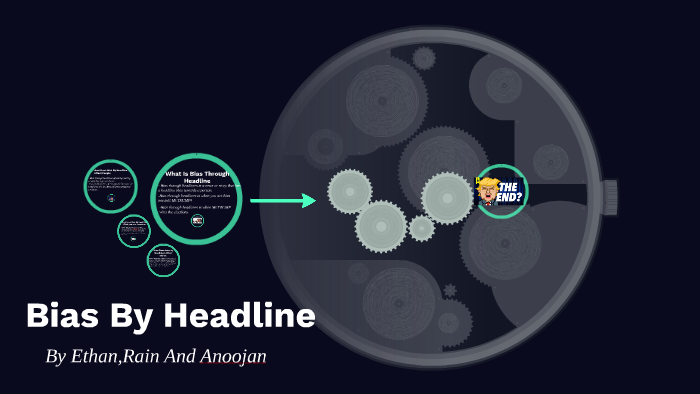

FIRST HEADLINE: 'Federal Reserve Board Ponders Reversal of Postponement of Deferral of Policy Reconsideration.' SECOND HEADLINE: 'Federal Reserve Board Caught in Motel with Underage Sheep.' Be honest, now. Writer Dave Barry demonstrated this media bias in favor of dramatic stories in a 1998 column. So they get covered much less than celebrity scandals or murder cases-which, while compelling, don't really affect the ability to sustain a democratic system. These analyses are vital to citizens-if we fail to protect our democracy, our lives will be changed forever-but they aren't always fun to read. The problem is that a focus on such stories crowds out what we need to know to protect our democracy, such as: How do the workings of American institutions benefit some groups and disadvantage others? In what ways do our major systems-education, health care, national defense and others-function effectively or less effectively? They don't want to read a story headlined "Dog bites man." They want "Man bites dog." That's what most people find interesting. Thus, the media define as "news" the kinds of stories that will attract an audience: those that feature drama, conflict, engaging pictures and immediacy. Some can't survive financially without an audience others want the prestige that comes from attracting a big audience. Almost all media outlets need audiences in order to exist. So if you feel that the media sources you're reading or watching are biased, you can read a wider variety of media sources. Since that time, the media universe has expanded to include huge numbers of internet news sites, cable channels and social media posts.
#Bias by headline examples full#
It reached full flower only in the few decades when broadcast television, limited to three major networks, was the primary source of political information. The notion of objective journalism-that media must report both sides of every issue in every story-barely existed until the late 1800s. Most were sponsored by a political party or a partisan individual. history, the major news sources-newspapers, for most of that time- were explicitly biased. When the Constitution was written and for most of U.S.
#Bias by headline examples free#
It doesn't say that Congress shall require all media sources to be "unbiased." Rather, it implies that as long as Congress does not systematically suppress any particular point of view, then the free press can do its job as one of the primary checks on a powerful government. The Constitution's First Amendment says Congress shall make no law limiting the freedom of the press. "The media," then, present a variety of different perspectives. ‘Liberal bias’ in the media is a constant topic on Fox News. If you want a very conservative news site, it is not hard to find one, and the same with a very liberal news site. These news outlets don't all take the same perspective on any given issue. There are hundreds of thousands of media outlets in the U.S.-newspapers, radio, network TV, cable TV, blogs, websites and social media. That doesn't mean that "the media" are biased. Not surprisingly, media outlets have arisen to appeal primarily to people who share a conservative view, or people who share a liberal view. A poll conducted in midyear 2022 by Pew showed that "72% of Republicans regard Democrats as more immoral, and 63% of Democrats say the same about Republicans." In a 2016 Pew Research Center poll, 45% of Republicans said the Democratic Party's policies are "so misguided that they threaten the nation's well-being," and 41% of Democrats said the same about Republicans. Republicans have become more consistently conservative, and Democrats have become more consistently liberal to moderate.Īs the lines have been drawn more clearly, many people have developed hostile feelings toward the opposition party. Many people, then, define "bias" as "anything that doesn't agree with me." It's not hard to see why.Īmerican party politics has become increasingly polarized in recent decades. If an article tilts in favor of their own party, they tend to see it as unbiased. Research shows that Republicans and Democrats spot bias only in articles that clearly favor the other party.

But of that half, typically a little more than a quarter say that their local media are biased against Republicans, and a little less than a quarter say the same local media are biased against Democrats. As a political scientist who has examined media coverage of the Trump presidency and campaigns, I can say that this is what social science research tells us about media bias.įirst, media bias is in the eye of the beholder.Ĭommunications scholars have found that if you ask people in any community, using scientific polling methods, whether their local media are biased, you'll find that about half say yes.


 0 kommentar(er)
0 kommentar(er)
